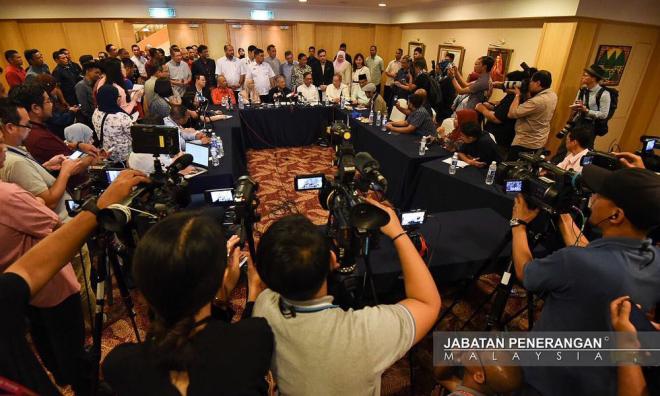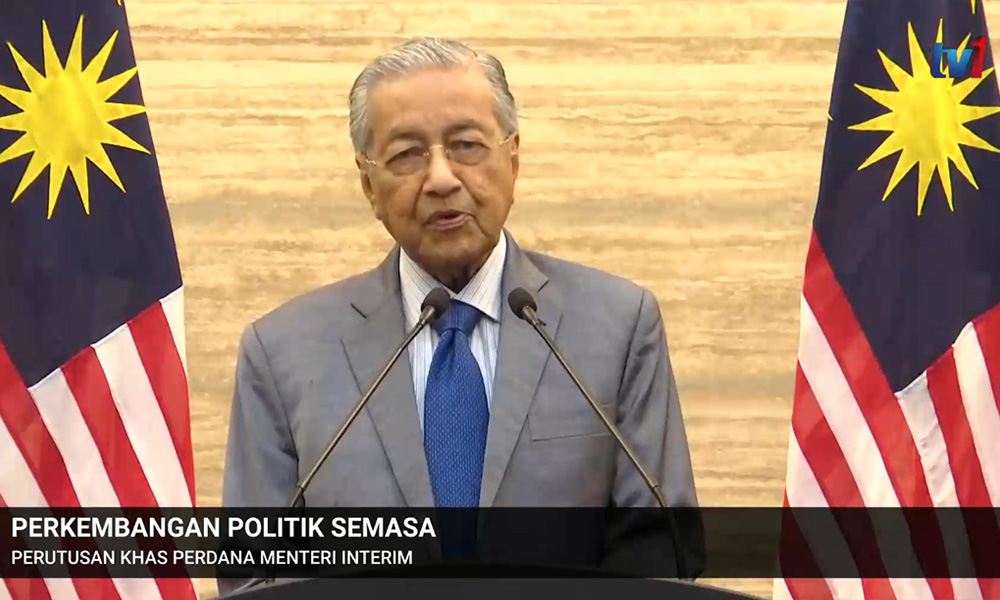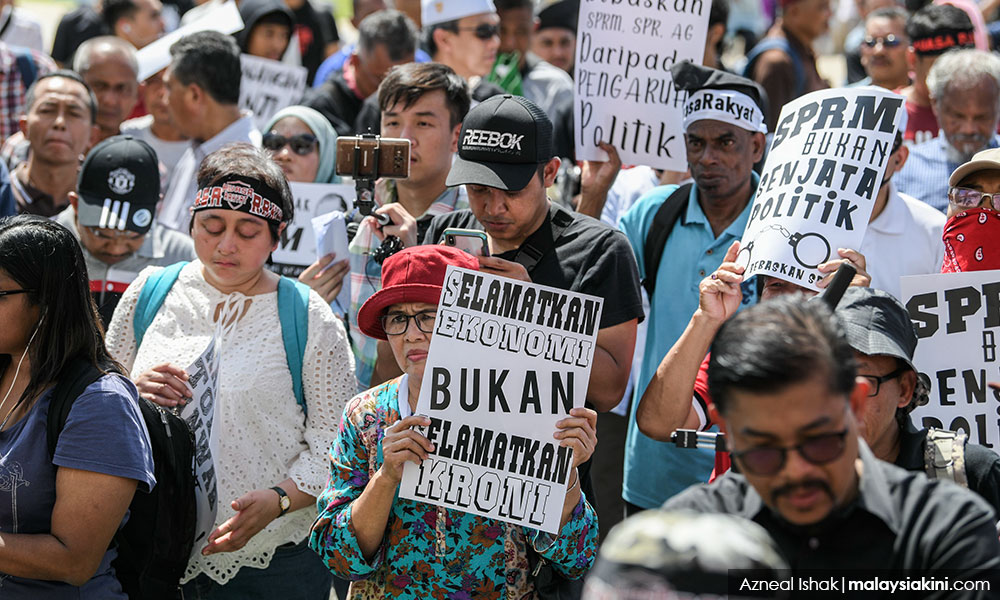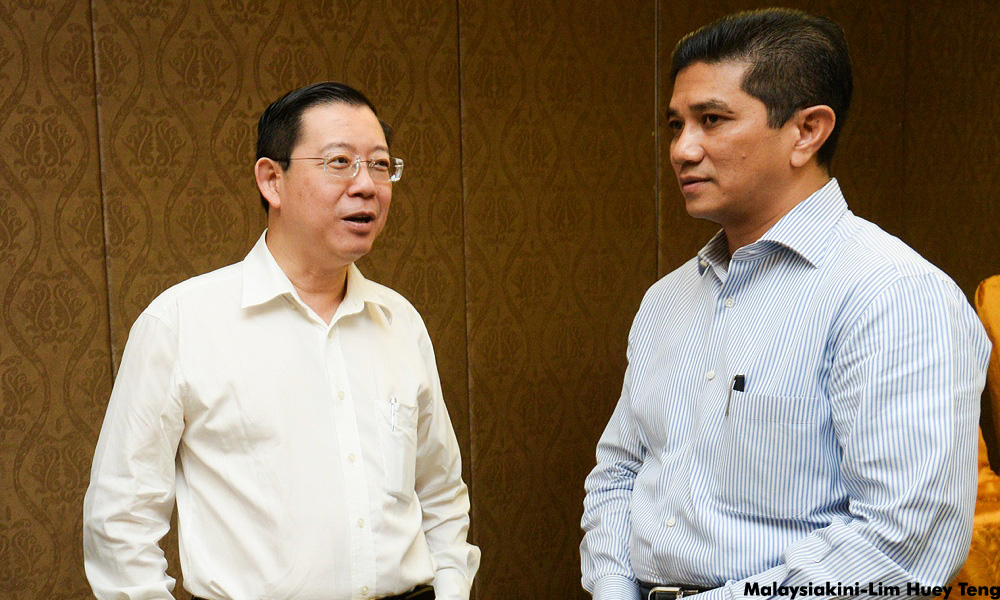
Liew Chin Tong is no sage. Regime collapse would have been farthest on his mind when he published his spiel – paean, really – on his blog a week before Malaysia’s politics spectacularly imploded, or exploded, last Monday.
Or perhaps he wilfully ignored the ominous signs that’d been evident for the last 22 months, which ballooned from disagreements to internecine warfare.
Liew – the political son and possible future leader of the DAP – wrote that so long as the centre cemented on Dr Mahathir Mohamad and his ‘anointed’ successor Anwar Ibrahim “continues to hold, then everything else will continue to fall into place.”
Everything else did fall into place – into a screaming heap of disgrace and confusion. The Pakatan Harapan regime, of which the predominantly Chinese DAP was an integral partner in the four-party ruling coalition, collapsed and died.
This after the incessant crowing by the Mahathir-Harapan administration of having delivered New Malaysia: new hopes for democracy, justice and reforms. At last, it was generally thought, Malaysia would tear away from the rabidly racist and infinitely corrupt country it’d become in the 63 years since independence, lorded by six successive Malay-strong regimes, including Mahathir’s between 1981-2003.
A partyless cabinet?
Today Malaysia withers in political crisis and economic limbo. But it’s not leaderless. The country’s figurehead king swiftly reappointed Mahathir as interim prime minister the second the latter tendered his resignation and unceremoniously quit his Bersatu party.
He’s running the government alone with the Malay-dominant bureaucracy. The old cabinet of interlopers he’d forged in mid-2018, after crushing Najib Razak’s insidiously corrupt and bigoted Umno-BN regime, also vanished in a puff of political dust.
As tempting as it is to burrow into the bowels of the coup de grâce that saw the Harapan self-destruct, what will rise from the smouldering ashes?

The one idea Mahathir is now touting is in fact rather bewildering. Among thinking Malaysians it’ll struggle to find traction. Among sections of the political establishment, who are desperate to cling to or grab power, it’ll either be rejected outright or be given courteous nod – for a while anyway.
Mahathir’s plan, if true, is to construct a ‘unity government’ for which a new cabinet will be sired from across the political spectrum – including the opposition; i.e. a partyless cabinet. Possible?
Damned if Mahathir will work with cretinuous Umno crooks and PAS cave dwellers. Damned if parasitic Umno and PAS boors will give the DAP a sideways look.
Unity government neither sounds good on paper nor any other way. It’s desperado politics from a Mahathir who is showing he’s out of his depth. Desperado politics always end up horribly for the people.
For starters, the unity government idea disregards a historically dire internal contradiction that is Malaysia. Multiracial Malaysia is perennially buttressed by a deeply polarised ‘society’. And, to boot, there’s no ‘Malaysian society’ to speak of other than the ruling class and the political daiquiri, and then some.
Admittedly some quarters might see a unity government as a chance to finally sow genuine accord among the different races. But this, again, ignores the fact that Malaysia is burdened with political-racial baggage that invariably helix in acute suspicions, accusations and outright nastiness on the turn of a dime.
Deep state
If the Umno-BN regime had a deep state, the Mahathir-Harapan regime grew one too if last weekend’s grab for power is any indication of the grubbiness of politicians. That’s not to say a deep state won’t make a comeback if a unity government were born. In fact it will, not because a unity government will be partyless, but precisely because it is partyless – just as when a regime ran along dominant party lines. It’s lose-lose every which way.
After more than six decades of state-nurtured racism, this ‘unity’ ship, if it sails, will sink like the Titanic. Because the idea also ignores that all political organisations in Malaysia are rooted in specific race-based politics informed by warped religiosity. So they routinely manifest their racist tendencies to ever-receptive, gullible and ignorant tentacles, particularly given the indelible growth of substandard Malaysian education since the mid-1970s.

Even the economy is racially bifurcated. Most large Malay firms or conglomerates are government-linked companies (GLCs). Almost all are dependent on state contracts that the state murkily hands out to its cronies. It’s the old story; the one that never went away, and won’t go away under any regime of any political flavour. For a politician to say it will is to suggest the politician is a liar.
Non-Malay conglomerates too rely on state contracts through their crafty state-business links or political patronage for large financial donations agreed to on the back of envelopes. Don’t be naïve: have a close look at various racially-denominated chambers of commerce and how they conduct their business.
Ironically, Malaysian taxpayers subsidise these mainly inefficient corporations who operate on the basis of opaqueness while the state protects them against competition from domestic Chinese but especially foreign capital. The home-grown auto-making industry is a perfect example of the paltriness of Malaysian business.
At lower levels of businesses and state-society relations, the cadaver of the New Economic Policy (NEP), inaugurated in 1970 – after the bloody race riots in 1969, which then categorically prodded state-sponsored racism across virtually all socio-political spheres, including state-sanctioned political attacks on non-Islamic religions – is indubitably still in play despite the gobbledygook that the NEP ended in 1990.
Can anybody imagine Mahathir or even Anwar Ibrahim stepping back from or pulling the NEP and its consecutive, explicitly race-based policy vehicles?
Economic doldrums
If that’s not enough, the economy has been regressing. Gross domestic product for 2019 was 3.6%, from 4.7% in 2018. Wages are stagnant and productivity has been declining. Bank Negara projects growth this year at 4.5%. It’s predictably rosy, given no part of the economy has seen real reforms for decades.
All this is reflected in the underperforming share market and the ringgit since before the Najib regime was chucked out. Under the Mahathir-Harapan administration, the economic slack has continued, never mind the brassy static or white noise from former finance minister Lim Guan Eng and ex-economics minister Azmin Ali.

The respected Malaysian Institute of Economic Research (MIER), more than Mahathir’s Economic Planning Unit (EPU), says the economy must grow at 7% per annum on average but – but – in association with real large-scale structural reforms if Mahathir is to deliver yet another of his wacky visions – Shared Prosperity – by 2030. It won’t happen. Why should it when Vision 2020 flopped big time? Look East flopped big time. The NEP flopped big time.
It won’t happen at the present rate of political upheavals, rising uncertainties, backstabbing, grand lies, ruthless corruption, zealous cronyism, and economic policy muddling, confusion and incompetence. And that’s just on the home front. The world economy has been in flux for years.
And bear in mind that the slower the economy grows, the greater the political demands will be from political organisations and powerful vested interests to ensure their sordid needs are protected and advanced. Then there’s their racially-calculated demands for greater access to increasingly scarce resources.
These in turn will have a growing price premium that in turn will hit the Malaysian economy where it hurts. And hurt it will the people big time. When this happens, they’ll become coupled with the heightening of Malay-nationalist jingoism.
It’ll make a ‘unity government’ look like a flight to fancy, if not lunacy, and the sure return in Malaysia of one-man dictatorship like a typical Third World state.
MANJIT BHATIA is a reader of international political-economy with focus on Asia. - Mkini



No comments:
Post a Comment
Note: Only a member of this blog may post a comment.